Table of content
What Do Interpersonal Skills Mean? Do They Matter Much?
What do interpersonal skills mean? Learn these 10 key soft skills and use the DISC model to communicate better as well as impress employers.
Table of content
Have you ever wondered why you’re not chosen by employers, even with strong expertise? You might be missing a key factor many people overlook: interpersonal skills. So, what do interpersonal skills mean in the workplace? And why do companies value them so much? Let’s find out with discpersonalities.com in the article below.
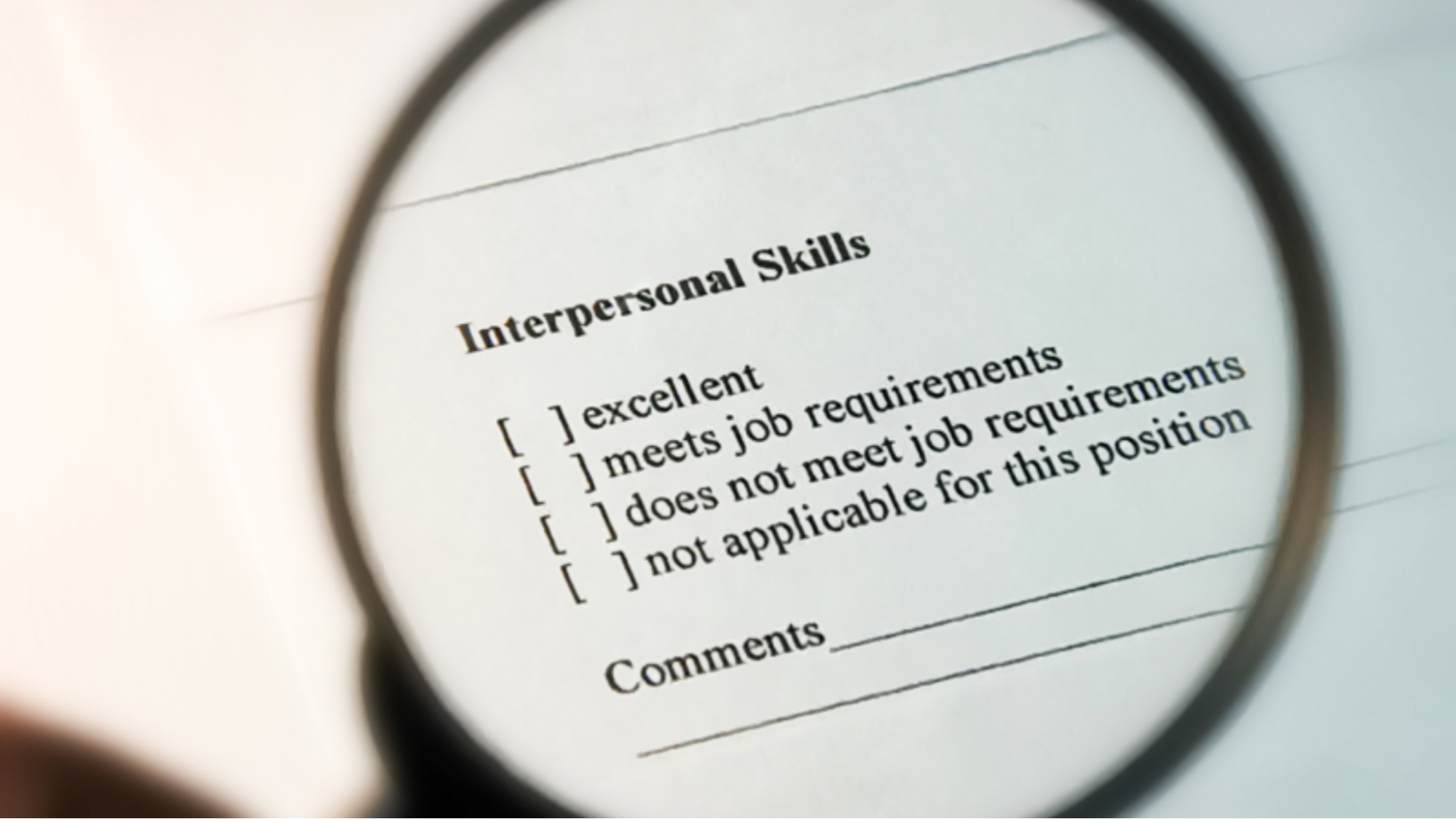
What Do Interpersonal Skills Mean?
Interpersonal skills are soft skills that enable individuals to communicate and interact effectively with others. You use them at work and in daily life.
Interpersonal skills include listening, showing empathy, speaking clearly, and staying calm during disagreements. For example, a good team leader listens to their team and helps solve problems with respect. That can be a sign of strong interpersonal skills.
These skills make the workplace more positive. It is because they help people work as a team and build strong, lasting relationships.
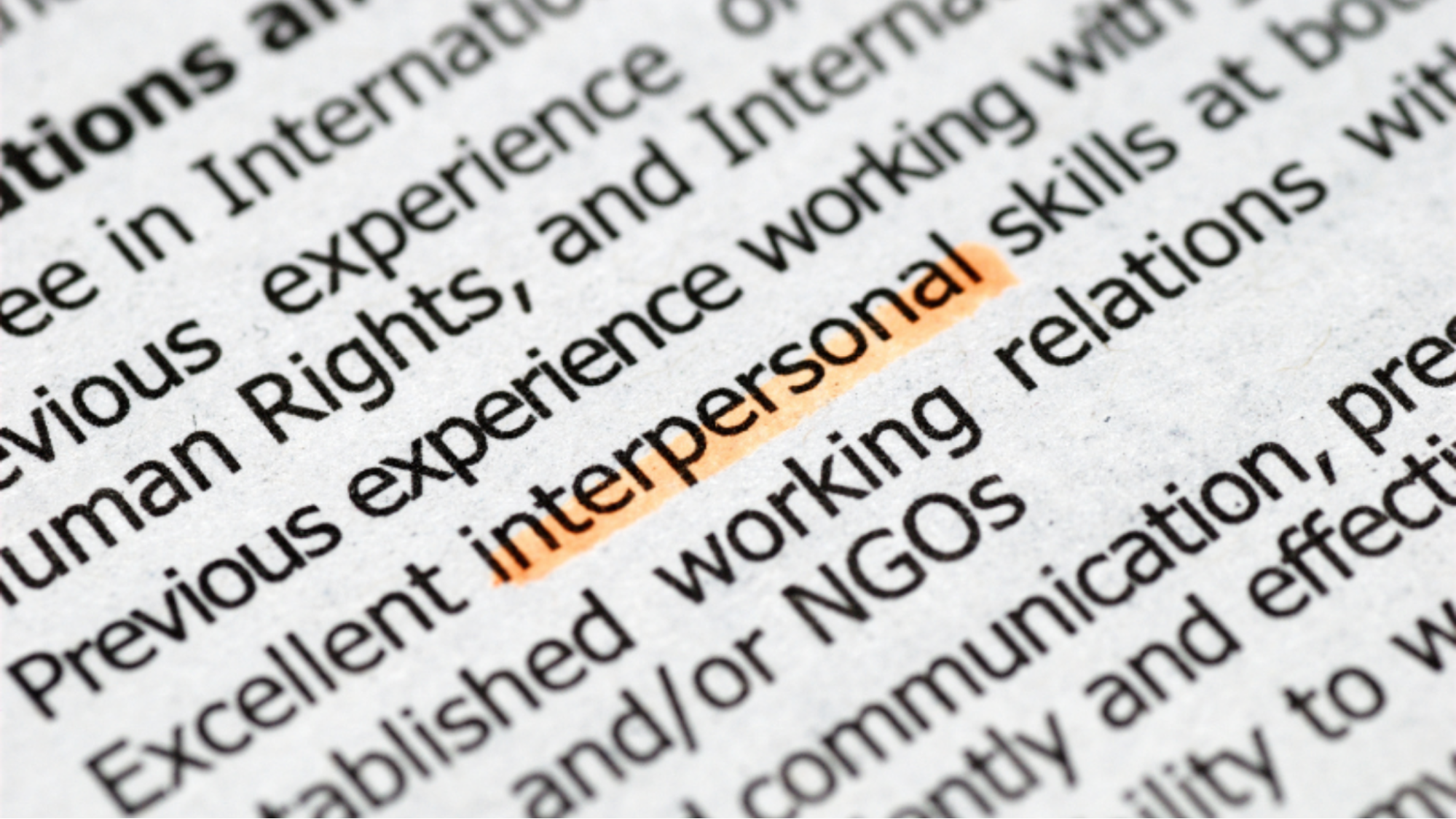
Key Differences Between Interpersonal, Communication And Social Skills
Many people new to the topic often ask, “What do interpersonal skills mean?” and easily confuse them with communication skills or social skills. While all three involve communication and social interaction, each has its focus and use. Here's the breakdown:
| Terms | Definition | When it’s used |
| Interpersonal skills | A set of skills that help you interact effectively with others. Includes communication, listening, empathy, teamwork, and conflict resolution. | In both work and everyday social life. |
| Communication skills | The ability to share information, whether through speaking, writing, or body language. | In situations where you need to deliver a message. |
| Social skills | Skills that help you build and maintain relationships in social settings, such as being friendly, making small talk, and using good manners. | Mainly in social and community activities. |
Why Do Employers Value Interpersonal Skills?
Interpersonal skills are more than a personal strength — they bring real value to a company. Employers want people with these skills because they help teams work better together. They make it easier to share ideas, solve problems, and stay productive.
What do interpersonal skills mean? Why do they matter? Here’s the answer:
- Adapt quickly to the work environment. People with strong interpersonal skills easily adapt to new workplaces. They make a good first impression. They connect with others quickly and easily understand the company culture.
- Communicate clearly, collaborate better. They present ideas clearly, give focused feedback, and actively listen. This reduces misunderstandings, boosts team performance, and improves cross-department collaboration.
- Handle conflict effectively. Strong personal skills people don’t avoid problems. Instead, they remain calm, assess the situation clearly, and strive to find a solution that works for everyone. Thus, they help maintain a positive work environment and improve employee retention.
- Boost professional performance. Interpersonal skills connect technical expertise with real-world results. They can simply share ideas. Plus, they work well with other teams and help their teammates reach common goals.
- Strengthen team and company culture. They often act as team "catalysts", which means they spread a spirit of cooperation. From there, people with strong interpersonal skills can help create an open and supportive work culture.
- Show leadership potential. Individuals who communicate effectively and establish strong connections are often trusted. They can shoulder responsibilities, including leadership roles. Thus, they can become good leaders who inspire and guide others.
Read more: 6 most popular leadership styles in 2025
Top 10 Most Important Interpersonal Skills
What are the types of interpersonal skills? Check out the top 10 skills that can improve your relationships with others and problem-solving.
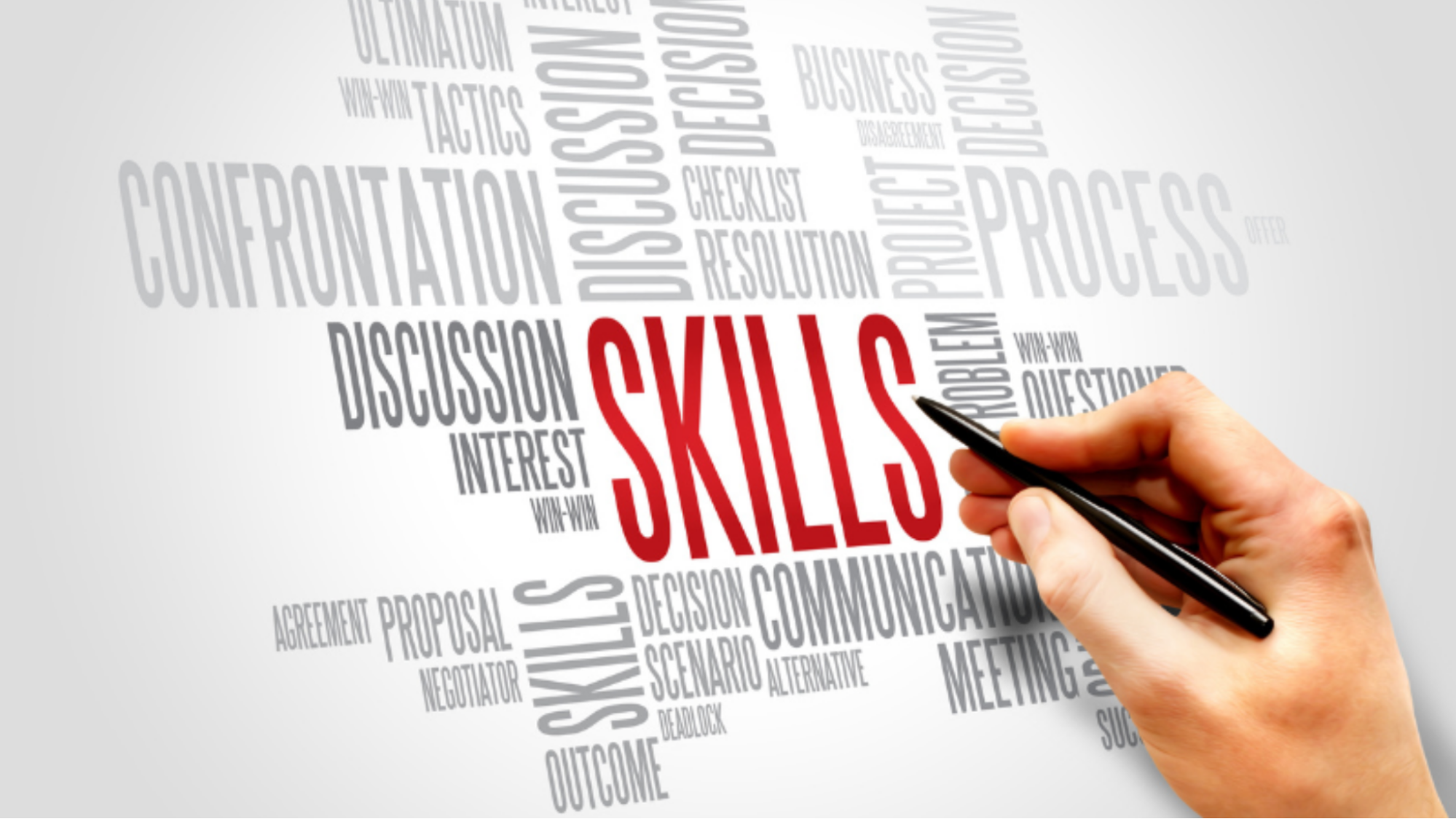
1. Communication
Good communication is how you can articulate yourself. What's more, you can use tone, body language, and write messages effectively. People whose communication is strong can adjust their message based on different audiences.
2. Active listening
True listening means giving your full attention, avoiding interruptions, and responding appropriately. It helps you understand others and builds trust — both are essential at work.
3. Creativity
Creative thinkers suggest new ideas, ask smart questions, and solve problems in unique ways. It’s not just for artists — creativity is a must-have in all industries.
4. Teamwork
Working in a team means more than sharing a task. Teamwork means helping each other and sharing tasks. It also involves solving conflicts and staying focused on the same goals.
5. Conflict resolution
Conflicts can arise from differences in opinions, goals, or working styles. People with strong conflict resolution skills don’t avoid problems. Instead, they speak up and start honest conversations. They look for solutions that are fair to everyone. With calmness, these people assess the situation objectively and use logical reasoning.
In a workplace, this skill helps maintain team stability and reduces both employee turnover and work disruption.

6. Negotiation
Negotiation isn't just about sales. It happens daily in the workplace: dividing tasks, adjusting deadlines, or requesting a raise. Skilled negotiators prepare carefully, understand both sides’ needs, and aim for win-win outcomes.
This skill shows that you can adapt, think ahead, and work well with others. It's especially important in jobs like management, sales, and working with partners.
7. Emotional control
In high-pressure environments, negative emotions can lead to poor decisions or damage relationships. Emotionally intelligent people can understand their feelings, stay calm, and respond in smart ways. They don’t let emotions take over and act professionally in all situations.
Emotional control helps you build a good image and earn respect from others.
8. Persuasion
Persuasion means getting others to agree with you by using clear ideas, facts, and empathy. Persuasive people know their audience to communicate at the right time and place.
Good persuasion skills help you share ideas, gain trust, and lead teams. They are also key in marketing and leadership. For example, marketing isn’t just about creativity — data plays a big role too. Marketers use data to understand their target audience better. When they present ideas or campaigns, they can use that data to back up their choices. This helps them build a stronger pitch and make smarter decisions.

9. Relationship building
Building relationships isn’t just about knowing many people. It means creating strong, two-way connections. People with this skill care about others and speak clearly. Also, they tend to leave good impressions.
They usually grow strong professional networks and utilize opportunities from there. Over time, they succeed because they have both skills and good relationships.
10. Time management
Effective time management means knowing how to prioritize tasks, create smart schedules, and meet deadlines. It helps you get more done and shows you respect others’ time, which is important when working in a team.
People with this skill often earn trust, feel less stressed, and handle projects more smoothly.

4 Effective Ways To Improve Your Interpersonal Skills
How to improve interpersonal skills? After learning “What do interpersonal skills mean?”, you can develop your skills through the following strategies:
1. Self-assessment
Improving interpersonal skills starts with understanding yourself. Ask:
- How do I react to criticism?
- Am I an active listener?
- What feedback do I get about my communication?
Keeping a daily communication journal or using tools like the DISC or MBTI tests can help you identify your strengths and areas for growth. When you know yourself well, you can adjust your behavior and grow more effectively.
2. Observe and listen actively
You don’t just learn communication from books; you learn it from people. Watch those who are good at all the skills mentioned. Notice their eye contact, tone, questions, and how they handle responses.
Also, practice active listening. Don’t interrupt, don’t judge, and truly focus on what the other person is saying. This improves empathy and helps you build stronger connections.
3. Practice emotional control
Emotions directly affect how we interact with others. One unfiltered reaction can ruin a relationship. So, learn to detect your emotions and respond more positively.
Simple methods like mindfulness, emotion journaling, 4-7-8 breathing, or yoga can help. The techniques keep you calm, help you think clearly, and improve how you talk to others.
4. Learn from experts and books
There are many helpful resources to improve your interpersonal skills. You can read books like How to Win Friends and Influence People by Dale Carnegie or Emotional Intelligence by Daniel Goleman.
You can also take soft skills courses on websites like Coursera or LinkedIn Learning.
Another good idea is to join workshops or training events. Working with a mentor can also help, as they give you personal feedback to grow faster.

Using The DISC Model To Develop Your Interpersonal Skills
The DISC model classifies people into four main personality types: Dominance (D), Influence (I), Steadiness (S), Compliance (C).
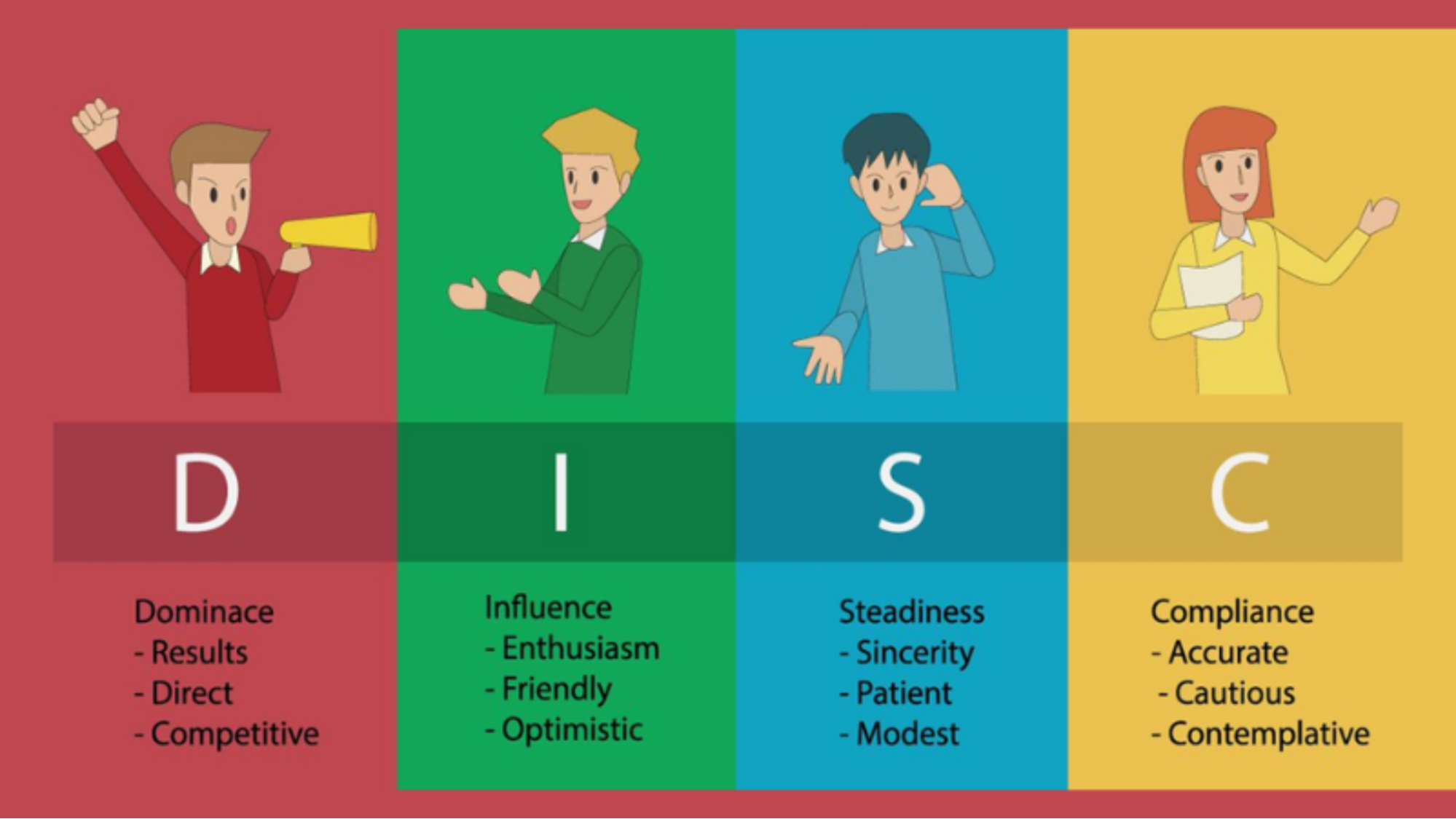
Each type communicates and interacts differently, affecting their interpersonal style and relationships.
- D Type: Assertive, results-focused, but may be impatient and dismissive. Needs to improve listening, manage impatience, and respect others' perspectives.
- I Type: Outgoing and influential, but may lack focus or emotional depth. Should practice deep listening, stay on topic, and build critical thinking.
- S Type: Calm, supportive, and reliable, but hesitant to change or speak up. Needs to develop flexibility, adaptability, and assertiveness.
- C Type: Analytical, organized, detail-driven, but can be a perfectionist and emotionally distant. Should work on openness, emotional expression, and building connections.
By understanding your DISC type, you can identify your communication style and grow your interpersonal strengths.
Conclusion
Hopefully, you have gained insights from the question “What do interpersonal skills mean?”. Understanding the importance of interpersonal skills can prepare you for better professional relationships. Having read all 10 key skills above, you can practice them to be an outstanding candidates at work.
For further information about yourself or what you can offer to the world, take a DISC test. It is a tool where you can discover strengths and areas to grow. DISC results are truly a blueprint of how you behave, bond with others, and achieve success.
Test yourself out: What is your personality type in DISC?
Frequently Asked Questions (FAQs)
1. Should I include interpersonal skills on my CV?
Yes! Include skills like communication, teamwork, or conflict resolution. These soft skills help hiring managers know if you can collaborate for the company’s benefit.
2. How can I tell if I have good interpersonal skills?
If you get along well with others, that’s a good sign. If you stay calm during conflicts and solve problems, that helps too. Building strong relationships also shows you have good interpersonal skills.
3. What careers require strong interpersonal skills?
Sales, marketing, project management, customer service, education, healthcare, and leadership roles all rely heavily on strong interpersonal skills to succeed.
4. What do interpersonal skills mean for students?
Students with high interpersonal skills can easily make friends and connect with teachers. They are well-suited for leadership roles since they can talk clearly, work in teams, and resolve interpersonal problems.


Don't Let Your Potential Stay Hidden!
Take the DISC test today and discover your unique 'YOU', with deep insights into your true personality and potential.

Represents your instinctive behaviors and desires.
Shows the behavioral tendencies you think you should exhibit in specific situations.
Related articles
You may also be interested in
 Self ExplorationDec 17, 2025
Self ExplorationDec 17, 2025What Are the Dynamics of a Team? Understanding How Teams Really Work
Discover what are the dynamics of a team and how they impact team performance. Learn how communication, roles & personality differences boost collaboration.
 Self ExplorationDec 16, 2025
Self ExplorationDec 16, 2025100+ Team Building Questions to Build Trust & Collaboration at Work
Explore effective team building questions to boost connection, trust, and collaboration in your team. Engage everyone and strengthen your team's dynamics today!
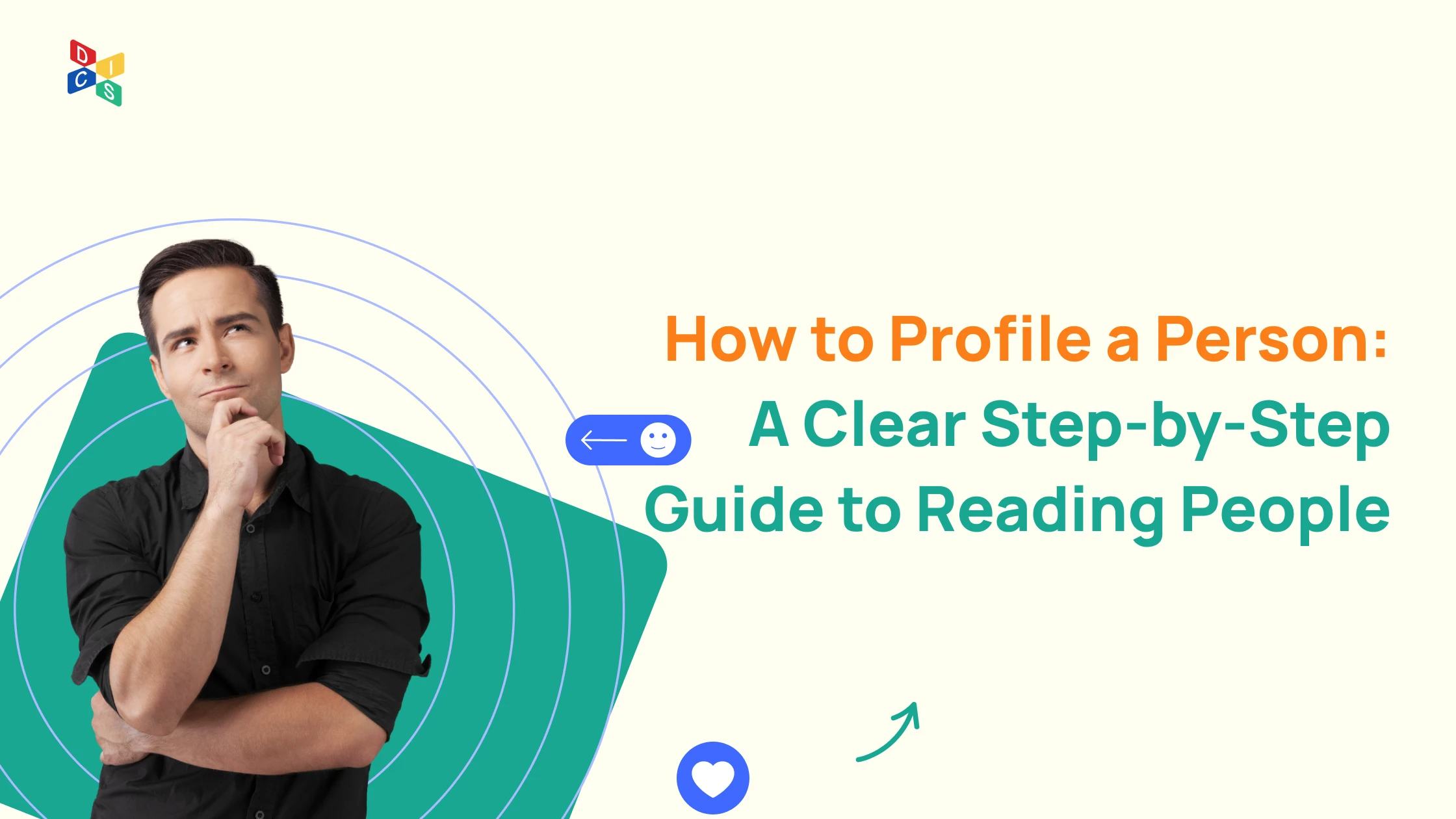 Self ExplorationDec 10, 2025
Self ExplorationDec 10, 2025How to Profile a Person: A Clear Step-by-Step Guide to Reading People
Learn how to profile a person step-by-step. Master practical techniques to read behavior, understand motives, and identify personality patterns accurately.
